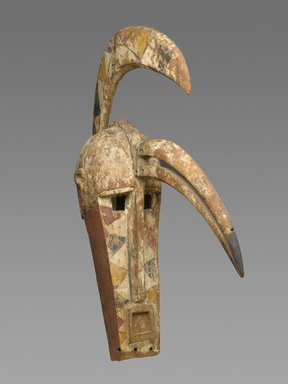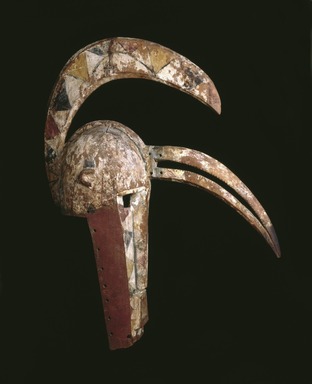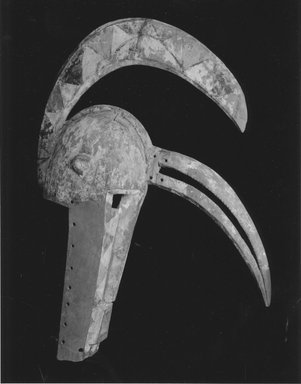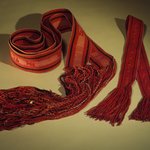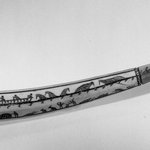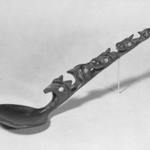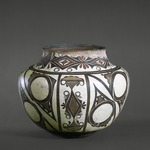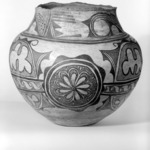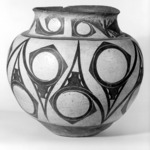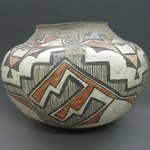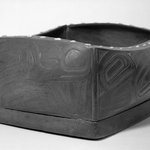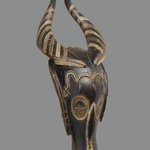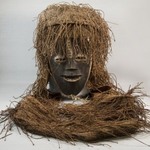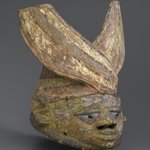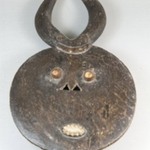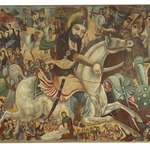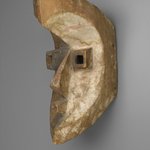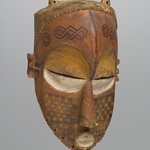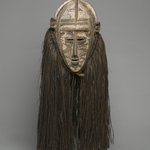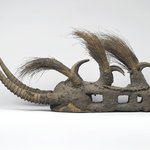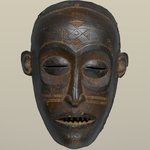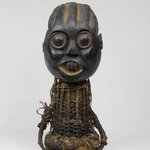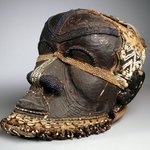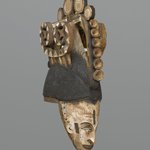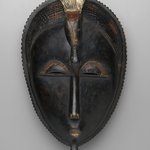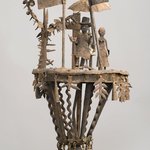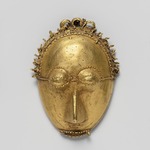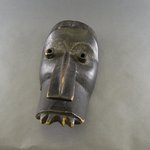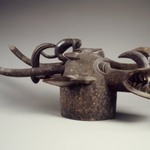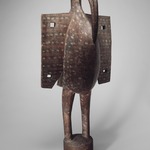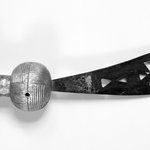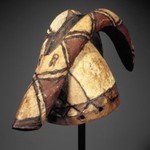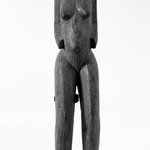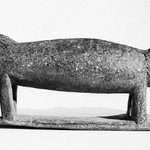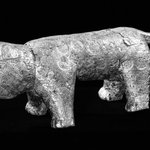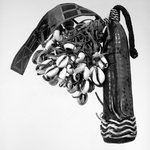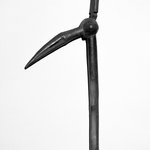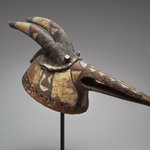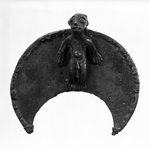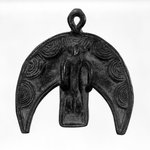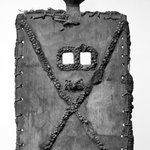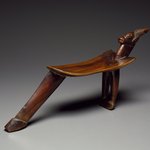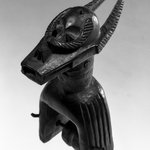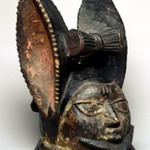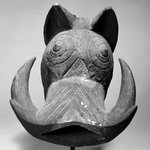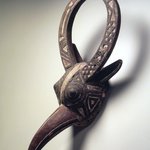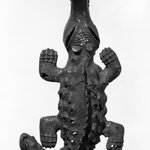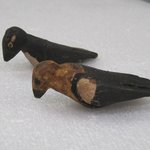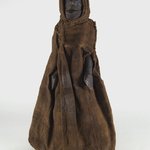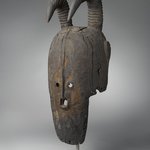Kuma Mask
Arts of Africa
This mask blends features of a hornbill bird, or kuma, with the horn of a buffalo, or tu, combining animals associated with great wisdom and danger. Men wearing such masks perform at the initiation rites to men’s societies, at the funerals of important male elders, and at annual harvest ceremonies. The fact that this mask has only one buffalo horn may indicate that its design was transferred between clans, in which case the original form, with two horns, would have been slightly altered.
MEDIUM
Wood, pigment, iron
DATES
late 19th–early 20th century
DIMENSIONS
33 3/4 x 10 1/2 x 27 3/4 in. (85.7 x 26.7 x 70.5 cm)
(show scale)
ACCESSION NUMBER
78.240
CREDIT LINE
Gift of Rosemary and George Lois
CATALOGUE DESCRIPTION
Polychrome wooden mask. The pigments used are white, ochre, red-brown and black. They are applied to the face of the mask in a triangular pattern. The nose is a long narrow ridge. The mouth is square shaped and painted red-brown. The eye holes are void squares. Ears are horse-shoe shaped. Extending horizontally out from the center of the forehead is a long, sweeping beak resembling that of a toucan bird. Starting at the back of the head and curving horizontally over the dome-shaped head is a sweeping curved horn. The proper right side of the mask has been painted with red-brown pigments; the proper left side has only traces of reddish-brown pigment because of erosion. There are drill holes on sides and bottom of mask for attachment.
MUSEUM LOCATION
This item is not on view
CAPTION
Bobo. Kuma Mask, late 19th–early 20th century. Wood, pigment, iron, 33 3/4 x 10 1/2 x 27 3/4 in. (85.7 x 26.7 x 70.5 cm). Brooklyn Museum, Gift of Rosemary and George Lois, 78.240. Creative Commons-BY (Photo: Brooklyn Museum, 78.240_PS2.jpg)
IMAGE
overall, 78.240_PS2.jpg. Brooklyn Museum photograph, 2007
"CUR" at the beginning of an image file name means that the image was created by a curatorial staff member. These study images may be digital point-and-shoot photographs, when we don\'t yet have high-quality studio photography, or they may be scans of older negatives, slides, or photographic prints, providing historical documentation of the object.
RIGHTS STATEMENT
Creative Commons-BY
You may download and use Brooklyn Museum images of this three-dimensional work in accordance with a
Creative Commons license. Fair use, as understood under the United States Copyright Act, may also apply.
Please include caption information from this page and credit the Brooklyn Museum. If you need a high resolution file, please fill out our online
application form (charges apply).
For further information about copyright, we recommend resources at the
United States Library of Congress,
Cornell University,
Copyright and Cultural Institutions: Guidelines for U.S. Libraries, Archives, and Museums, and
Copyright Watch.
For more information about the Museum's rights project, including how rights types are assigned, please see our
blog posts on copyright.
If you have any information regarding this work and rights to it, please contact
copyright@brooklynmuseum.org.
RECORD COMPLETENESS
Not every record you will find here is complete. More information is available for some works than for others, and some entries have been updated more recently. Records are frequently reviewed and revised, and
we welcome any additional information you might have.
